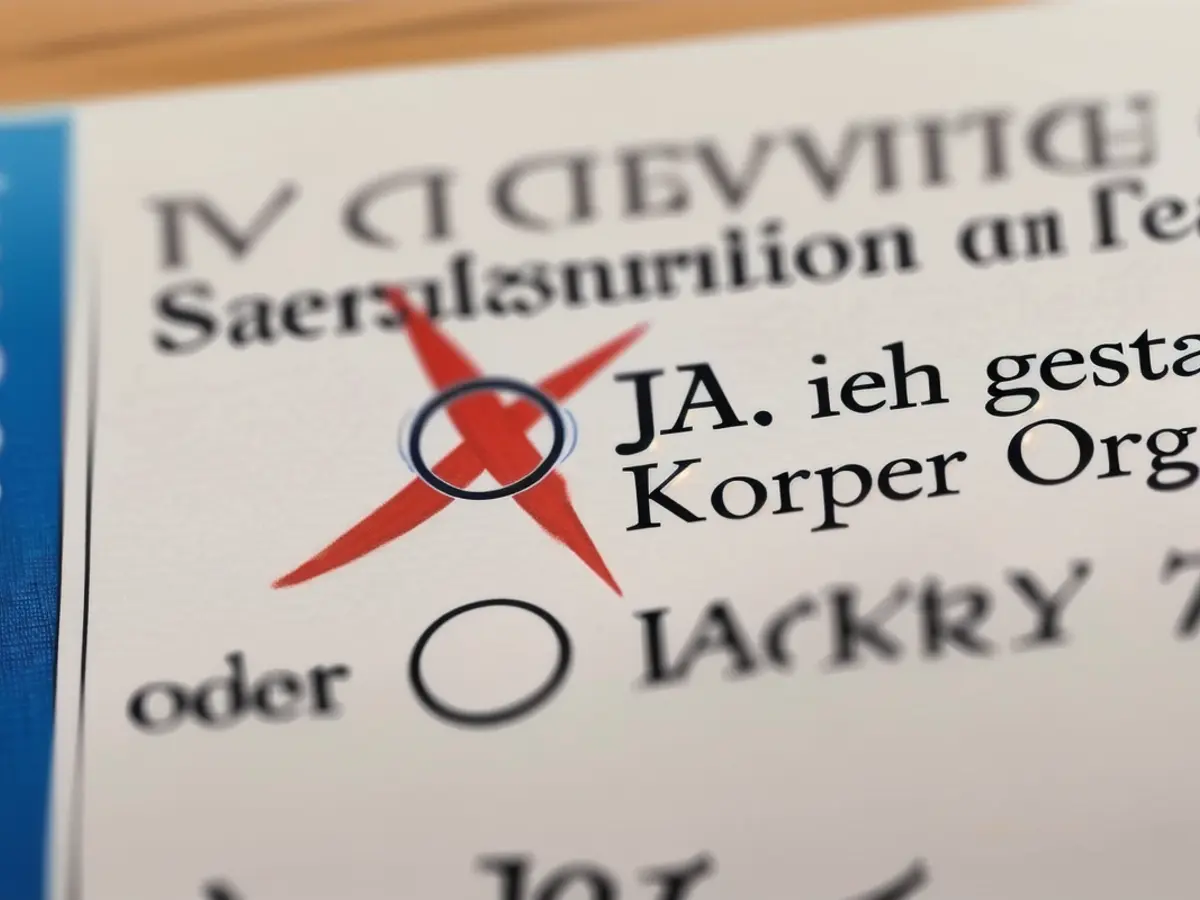Day for Organ Donation - Specialist: There's a shortage of possible organ donors.
The percentage of individuals in Germany carrying an organ donor card or possessing a patient directive is still insufficient, asserts experts. Axel Rahmel, the Medical Director at the German Organ Transplant Foundation (DSO), disclosed that only approximately 15% of prospective organ donors have their wishes recorded in writing.
In about two-thirds of these instances, the responsibility of deciding whether to proceed with organ donation lands on the deceased's relatives. They are either compelled to adhere to the deceased's indicated or inferred intentions or are forced to make choices based on their own values, as disclosed by Rahmel on the 1st of June during National Organ Donation Day.
Rahmel added that in cases of indecision, relatives grant consent to organ donation eight times out of ten: "and this," he noted, "even though surveys indicate that over 80% of the German population favor organ donation."
The necessity for organ donations becomes clear when examining the waiting lists of Eurotransplant. As of the end of April, over 8,300 people across the country were eagerly awaiting a donor organ. Over 6,400 cases revolved around patients in need of a kidney.
The DSO anticipates improvements with the introduction of the online organ donation registry. Since mid-March, individuals have been able to register their desires at www.organspende-register.de – either to donate organs posthumously or not. As per the Federal Center for Health Education, over 120,000 people have registered by the end of May.
The DSO's hope for this portal lies in amplifying the awareness surrounding the platform. Only if a large number of individuals document their preferences in the online registry can it effectively complement the organ donor card and patient directive.
DSO's managing director, Rahmel, advocates for more recognition of the portal. He maintains that a significant portion of the population in Germany would need to register their wishes in the registry for it to prove truly beneficial.
"A shift to an opt-out approach could help foster a culture of organ donation, as demonstrated in other countries. This approach would act as a clear signal that society and politics view organ donation favorably, laying the groundwork for an unmistakable attitude towards the subject of organ donation," Rahmel stated.
Read also:
- Despite the shortage of organ donors in Berlin, Germany, individuals are encouraged to carry an organ donor card or create a living will to record their wishes.
- In a statement on National Organ Donation Day, Axel Rahmel, the Medical Director at the German Organ Transplant Foundation (DSO), highlighted the need for more people to register their intentions, as only 15% of potential donors have done so.
- Rahmel mentioned that in cases where relatives are required to make decisions about organ donation, they often follow the deceased's stated or implied wishes, with eight out of ten relatives consenting even though surveys indicate that over 80% of Germans support organ donation.
- With the introduction of the online organ donation registry, individuals can now register their preferences at www.organspende-register.de, with over 120,000 people having registered by the end of May.
- Advocating for wider recognition of the online registry, Rahmel suggested that a shift to an opt-out approach, as seen in other countries, could promote a culture of organ donation and show society's approval of the practice, potentially increasing the number of registered wishes.







